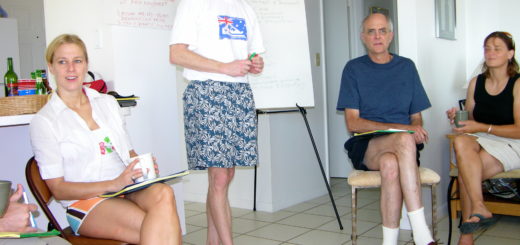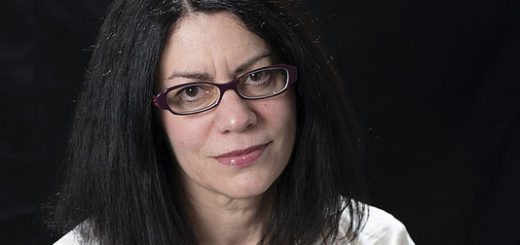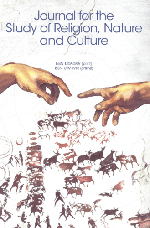Graduate Student Paper Awards 2023
At each conference, the ISSRNC selects one graduate student to receive a merit-based award for best graduate student paper. Graduate students are asked to submit their full conference papers, and submissions are anonymously reviewed by the Awards Committee. Several previous award winners have gone on to publish their papers in the Journal for the Study of Religion, Nature and Culture, which we hope will be the case this year as well, and not necessarily just for award winners. The Journal exists as a space for all of us, graduate students and PhDs, to share ideas in the spirit of what Editor-in-Chief Bron Taylor has called “taboo free inquiry.”
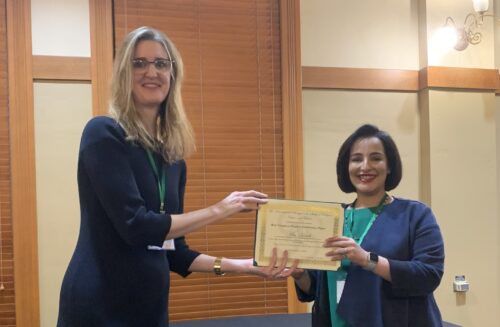
Mai Lootah (right) receives the Best Graduate Student Paper Award from board member Jessica Beaudette (left) at the 2023 ISSRNC conference.
As has been the case in previous years, we were delighted by the quality of graduate student submissions for the 2023 After Earth conference, and we were pleased to see the breadth of topics and approaches. We are proud to be a society that offers a suitable intellectual habitat for approaches as diverse as ethnography, textual exegesis, literary criticism, and interdisciplinary theorizing, to mention a few of the approaches found in the submitted papers this year.
It is often a challenge, however, to come up with one best paper when the criteria for excellence are different in different disciplines. This year, while we agreed about some of the strongest contenders, there was no easy consensus when it came to choosing only two for special recognition. And that is as it should be. In a world of myriad complexities, there can be no one best paper, but the best papers help us view a complicated world in new ways.
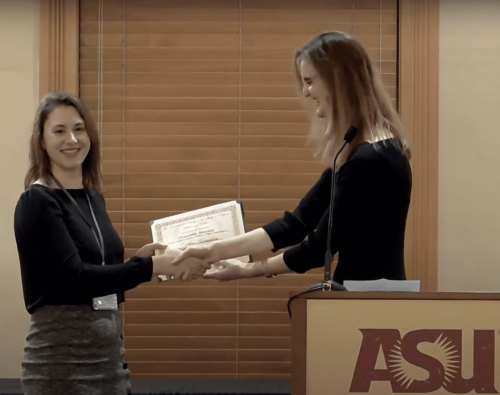
Caitlin Kossman (left) receives the Honorable Mention Award at the 2023 ISSRNC conference.
This year, Caitlin Kossman, a Ph.D. student at Yale University, was awarded Honorable Mention for her paper “Gaia as Myth and Politics.”
The award for first place went to Mai Lootah, Ph.D. student at Rice University, for her paper “Cosmic Chaos and Transformation in Scientific Qu’rānic Exegeses.”
We want to offer our thanks to all who submitted papers this year–for fascinating us, for challenging us, and for surprising us. Your energy and ideas are a vital part of the important conversations we are having and hope to continue to have about the interrelationships between religion, nature and culture.


